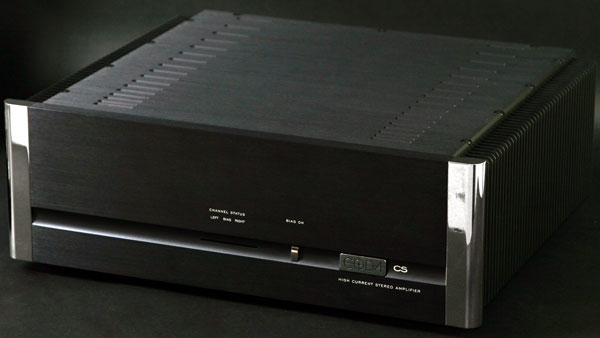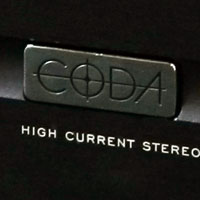Let’s talk about synergy. It’s a term that’s discussed on a regular basis in the audiophile community. It seems an ill-defined concept applied to all manner of systems without regard for a technical definition. I spent half an hour punching search terms into my browser, such as: “audio terminology”, “audio glossary”, “audio glossary synergy”, “audio component synergy”, “audio lexicon”, “audiophile synergy”, and similar variants. What did I come up with? Virtually nothing, certainly nothing approaching uniformity across the landscape of listening to get a handle on this mysterious thing, “synergy.” It seemed about as elusive as the astrophysicist’s Dark Matter. Occasionally one sees discussion on forums regarding output and input voltages between amplification components, but other than that “synergy” seems to gravitate toward whatever we like in an audio system.
It seems everyone is left to define his or her own version of synergy. No wonder it’s tossed about so cavalierly and means so little. The person likes the sound, so they say “The system has a great deal of synergy,’ or they do not care for it, so there is little synergy. In such cases I like to define what a concept means. I’m not satisfied with the unsophisticated definition of “components which sound good together” as a guideline. For years I thought that I had experienced synergy between components – until I heard a new rig that I liked better. What, then, happened to the old rig and its synergy? I guess it wasn’t quite as synergistic as I had thought. This is the way it goes for thousands of audiophiles, and frankly it seems everyone, including industry professionals too, are guessing at what system synergy is.
The concept of system synergy strikes me as similar to the concept of Natural Selection in Neo-Darwinism. Natural Selection, or “survival of the fittest” is circular in that it self-verifies. Which creature is fittest? The one that survives better. Which one survives better? The fittest one. We’ve not really learned too much about the concept from that tautology; it’s an observation that has limited practical usefulness. One can philosophize and speculate all they wish, but the observation is impotent, as demonstrated by all manner of human intrusions into nature to assist species to survive better often with unpredictable results.
Similarly, I see audiophiles, professional and novice alike, invoking the term synergy to describe rigs and falling into the same circular reasoning. Which rig has synergy? The one which sounds good. Which rigs sound good? Ones with synergy! Again, we have a logic loop. And, again, we have very little of portable value in the statement that a rig has synergy. If one wishes to buy an entire system upon reflection, then perhaps the synergy claim is valuable. A while back I conducted a “Super-Review” system analysis and specifically commented that I thought the lot of components were a worthwhile consideration for someone setting up shop. But, there is a far better way to get a handle on this concept.
I will dare to define the term “synergy” more narrowly, and in a way that I have never seen prior. Maybe I’m reinventing the wheel here, but if the following information is so basic, so obvious, why is it not spelled out for beginners? Why is it not found in audiophile glossaries? I refer to the practice of voicing equipment, or a manufacturer’s massaging the sound of a component to obtain the result desired using specific ancillary gear. As I conducted reviews it struck me to ask the manufacturer what pieces they used in the voicing process. If I used their input as a guide I would have an advantage in setting up superior sounding rigs – theoretically.
This article is about one such example, the Coda Technologies Amplification, which was used by Legacy Audio in the voicing of the Whisper speaker, which also happened to be voiced using Coda amplification. Double Synergy! Sounds like Double Jeopardy. Since I have not discovered a firm definition of synergy, I will define it as not simply a good match of components and speaker, but rather an intentional match of components in the voicing process. In other words, a component which was designed and voiced to work extremely well with another has a seemingly unfair advantage over other products – synergy!
This is an intriguing concept, but if it is something real it should be demonstrable, at least to a degree. For instance, if the Legacy Audio Whisper is voiced using Coda amplification, theoretically the Coda should sound better, having an advantage in synergy, than other solid-state amps with that particular speaker. This review is an informal experiment to see if that is the case. If so, then informally I have demonstrated the power of what I call synergy. If not, then my concept is one step closer to being scrapped.
Is synergy such a powerful element of system building that it trumps most other considerations, such as tube vs. solid-state amplification? If so, that makes picking a complementary component a breeze, just find out what was used in listening sessions as the device was being voiced. If not, the influence of synergy is not negated, merely diminished. The question then becomes to what degree synergy is important in component selection and system establishment.
History Of Coda Technologies
CODA endured some tough times beginning in 2003 as the industrial park where it was located since its founding in 1989 was sold and repurposed, forcing a move. In the words of Doug Dale, CODA’s president, a subsequent attempted hostile takeover disrupted the company, “Issues with Marketing staff and the exit of one of the company’s three founders led to a company restructuring in 2006. This, followed by a collapse of a large OEM client, left CODA with a considerable amount of unusable material and undeliverable product. CODA had to work for a couple years to ‘right the ship’.” Even though the company had to endure the economic recession of 2008, to Doug’s credit CODA has emerged as a survivor; it has not only maintained its product line but expanded it!
Doug’s story is one where the passion and perseverance of a person who loves audio keeps a company alive. Another company which was going through its own drama was Legacy Audio. Bill Dudleston had sold the controlling share of the company to an organ maker seeking speaker systems for electronic organs. Realizing over time the company’s apathy toward high-end speakers, he had to regain control of Legacy for it to have any meaningful future as a high-end speaker maker. It is heartening to see these two indefatigable men surmounting enormous challenges, recovering the capacity to offer the audiophile community high quality goods at savory prices! Perhaps we should call these American re-success stories.
As a bit of an aside, when audiophiles find that a company is not responding or not able to fulfill warranty work, they should know that in some cases there are painful personal events unfolding behind the scenes. It’s very easy to become churlish when we don’t get that email returned or the unit that we sent in sits for weeks at the shop. Consider how volatile scheduling would be and how priorities would be skewed if, say, one were going through an acrimonious divorce, or in the case above, a fight within the company. A lot of smaller things which would normally be considered important would be neglected. That’s what happens when a company is on the rocks because the owner’s life has been turned upside down.
We would all like to have our products sold and serviced by individuals whose personal lives and companies are immutable so that the service for our product is spared potential fallout. There is a chance that if you are a consistent component purchaser at one point you will be the stranded customer, the one holding a unit which is not easily serviceable. Consider it a cost of being an audiophile. As leadership guru John Maxwell has said, problems can make us bitter or better. There are times when we must choose to be better, despite the circumstances. Yet, because of passion for their designs and dedication to their business and the audio community, companies like Coda and Legacy not only survived, but are once again growing.
Rising From Ashes
Companies do survive attempted hostile takeovers, floods, fires, burglaries, etc. and come back stronger than ever. However, they then have to rebuild reputations, as memories die hard in Audioland. Those who once owned a particular piece of “junk” from ABC Audio rail against the maker, even though now the company may be a new entity. Often the tale of the demise of the former company is not fully known, so the maker or machinery is maligned by association with the former. In some cases abasement is well deserved as the owner may be leaving a trail of ruined companies and spinning off orphaned equipment. In other cases, like Coda, the quality of the work precedes disaster, and the older models sell well on the open market because of their quality. Persons who were blindsided like Doug don’t parade their horror stories. He didn’t make a big deal about his tough experience, whereas I have. Good guys in audio need someone to tell their tale so they get another chance. They work like dogs to rebuild hoping people will give them and their equipment another day in the sun.
I gave Legacy Audio a try and it turned out to be a discovery of one of the finest sounding speaker brands one can find for the money across the audiophile landscape. In this review I gave Coda a try, largely because of my admiration for Bill Dudleston as a speaker designer whose reference amplifier is the Coda, and it too surpassed expectations earning an endorsement as not only a fine amplifier but a confirmation of my concept of voicing synergy.
- (Page 1 of 4)
- Next page →


I remember well That I met with the guys that worked with my dear friend Nelson Pass.,They started the Coda amp project in the end.Today I use multiple Butler Poweramps with my Legacy Focus loudspeakers in Marbella. Friendly tubey sound. Then again very detailed at the same time!
Coda Technologies Continuum No. 8 Amplifier, Where can I listen to this Amp ? I live in Natchez, MS. What is the price of this Amplifier?